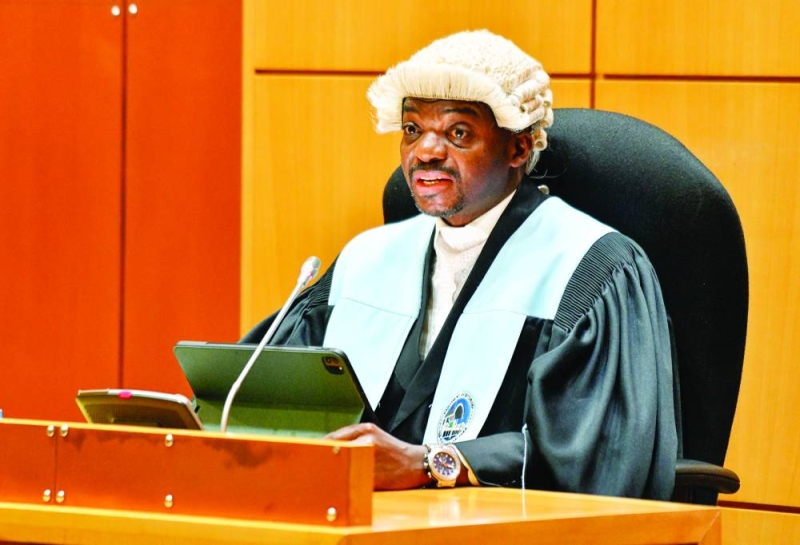Women representation in Parliament disappointing – Keorapetse


The Speaker of the National Assembly, Dithapelo Keorapetse says as a new government, they have fought gallantly for the country’s democracy.
He said government therefore commits to nurturing this democracy through robust democratic reforms to ensure that it is indeed a government of the people, by the people and most importantly for the many people and not just for the few.
Speaking at the 150th Inter Parliamentary Union (IPU) Assembly in Tashkent, Uzbekistan this week, Keorapetse said the 2024 elections also highlighted a sobering reality as the Parliament now has fewer women at only nine percent or six women MPs. He explained that in comparison to other Parliaments the world over, these are very low and disappointing statistics.
This, therefore, calls for the country to reflect and introspect on the IPU’s call for gender parity, which should not be viewed just as an idealistic reform; but also as a reminder about the urgency of electoral reforms that will help the country realise this important objective, Keorapetse said.
On a more positive note, he indicated that about 36 percent of the Members of the 13th Parliament of Botswana are young Parliamentarians as per (IPU standards).
“Members of the 13th Parliament of the Republic of Botswana are an educated and diverse group whose mandate is to be a model of excellence in democracy through the following democratic pillars: providing transformative legislation that uplifts the marginalised; relentless oversight to curb corruption; robust capacity-building to equip MPs as stewards of justice; and promote parliamentary diplomacy to forge alliances to amplify these goals and objectives globally,” Keorapetse told the Assembly.
Botswana’s new administration has placed human rights at the centre of its activities and processes, and this has seen a restructuring of Botswana's foreign policy whereby human rights are placed at the centre of engagements with external actors and partners.
He highlighted that the human rights approach is not only a moral imperative, but a reflection of Botswana’s commitment to democratic principles, justice and equality.
Thus, Botswana strives to engage with other nations from a position of integrity and conviction. By adopting a human rights based approach, the government of Botswana supports causes promoting peace, stability and sustainable development both at home and abroad.
On the critical importance of parliamentary action in fostering social development and justice, Keorapetse noted that Parliaments are the voice of the people, and hold the sacred responsibility of championing policies and legislation to uplift the lives of all citizens, especially the most vulnerable.
“We must be proactive in enacting laws that promote the economic empowerment of our citizens, creating an enabling environment for sustainable job creation, entrepreneurship, and skills development.”
He said this includes promoting access to finance, technology, and markets for all the citizens, regardless of their background.
The speaker stated that within this equation, quality education and accessible healthcare are other key areas which are fundamental human rights.
He called for investment in building more schools and hospitals to ensure that every child has the opportunity to learn and that all children have access to basic medical care.
“We must also strengthen our social welfare programmes, to ensure that they are effective, efficient, and reach those who need them the most.
“Good governance and accountability are also key elements of social development and justice because transparency, accountability, and the rule of law, are essential for social development and justice”, he said.
Keorapetse told the assembly that Parliaments must also play a crucial oversight role to ensure that government policies and programmes are implemented effectively and efficiently.
“We must hold the Executive accountable for its actions and ensure that public resources are prudently and justly allocated,” he said.
